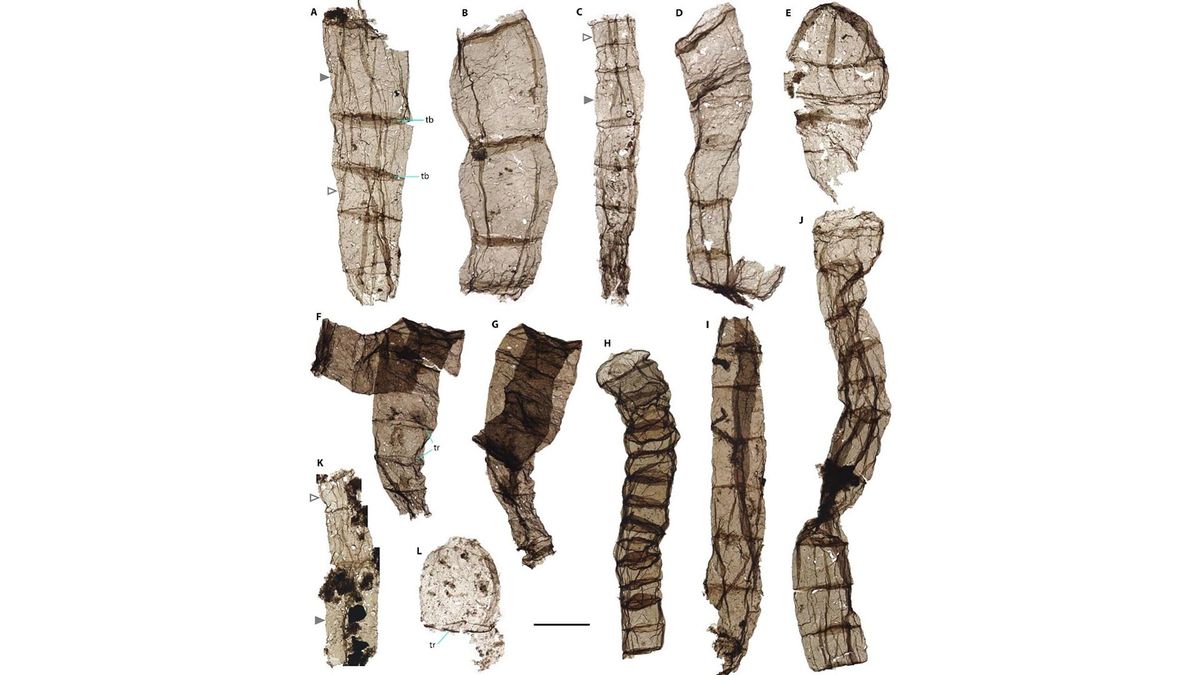The discovery of 1.6-billion-year-old fossils in China suggests that multicellular organisms may have emerged earlier than previously believed. These fossils, potentially an ancient type of photosynthetic alga, represent the oldest known multicellular eukaryotes, dating back more than 1.6 billion years. This is approximately 70 million years earlier than the previously estimated timeline for the evolution of multicellularity.
These groundbreaking fossils were found in China’s Chuanlinggou Formation and are believed to be examples of Qingshania magnifica. They appear as filamented tubes comprising up to 20 barrel-shaped cells stacked on each other, some of which had spores, indicating a likelihood of asexual reproduction. The variation in appearance of these filaments suggests a certain level of complexity.
The first single-celled eukaryotes, which encompass all plant and animal life on Earth, appeared around 1.65 billion years ago. The new study showing the early emergence of Q. magnifica suggests that the branch of eukaryotes acquired multicellularity relatively soon after the appearance of single-celled eukaryotes.
This research builds on a previous discovery of Q. magnifica in 1989, which received little attention due to the poor image quality of the material and its publication in a less accessible journal. The recent revisit to the area in 2015 led to the discovery of 279 microscopic fossils, the majority of which were identified as Q. magnifica. Further analysis revealed that these organisms had adjoining cell walls, indicating a possible energy source from photosynthesis.
The study highlights the significance of analyzing ancient organisms in unraveling the evolutionary history of life on Earth. It emphasizes the challenges and rewards of positively identifying fossils that are over a billion years old and recognizes the exceptional difficulty of such research. The conclusions drawn from this study represent a significant discovery with substantial implications for understanding the lineage that eventually gave rise to modern complex life.









:max_bytes(150000):strip_icc()/GettyImages-2219202040-81d9976c56a74319b5b19123653ff121.jpg)




